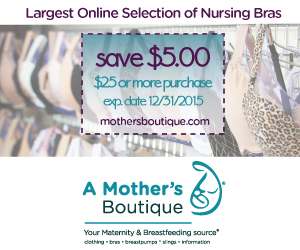
Women have been using midwives as caregivers during pregnancy and childbirth since ancient times. The practice has seen a comeback in recent decades and is considered a safe and viable alternative to using a physician for your prenatal care. There are many benefits of using a midwife and if you’re considering whether it’s the right choice for you, the following information may help you decide.
What is a Midwife?
Midwives are health care providers who are fully qualified to administer prenatal care and to deliver babies. They are certified professionals who must undergo extensive training and evaluation to become credentialed. Most earn their CM (Certified Midwife), CPM (Certified Professional Midwife), or CNM (Certified Nurse Midwife) before they begin to practice.
Midwives are not physicians, but rather specialized caregivers focusing solely on women’s reproductive health and childbirth. The philosophy behind midwifery holds that women know their own bodies better than anyone, and with proper guidance can have a natural pregnancy and childbirth experience.
How is a Midwife Different from an OB/GYN?
An obstetrician-gynecologist follows a very regimented set of clinical guidelines when it comes to prenatal care and childbirth. Midwives tend to work more closely with mothers to develop a care plan that is personalized to them. Where an OB/GYN may have several patients that he must see each day, midwives tend to take on fewer clients and can therefore spend more one-on-one time with each one. Since their goal is to facilitate a natural birth, a midwife may offer alternative pain control and labor-encouraging activities to help avoid the need for surgical and/or medical interventions.
A midwife cannot perform C-sections, administer epidurals, nor can they use forceps or vacuums to aid in delivery. Only a physician is legally allowed to take such measures. A midwife does not perform circumcisions or any kind of pediatric care beyond initial post-birth checks, like measurements and APGAR.
Why People Choose to Have a Midwife
According to research, mothers who work with midwives experience fewer complications and lower intervention rates than those who don’t. There is also a very high survival rate among babies and mothers under the care of a midwife during birth.
Those who feel rushed at the doctor’s office or who want be more of an active participant in their own care program often appreciate the attentiveness that a midwife can provide. Those interested in exploring a more holistic approach to pregnancy and childbirth may find the midwifery model more in alignment with their own beliefs than typical clinical approaches.
Patients of midwives also enjoy much lower care costs, which is probably due in part to the fact that fewer costly intervention procedures are performed. Also, nearly all types of health insurance cover midwife services.
Most women who opt for a home birth choose to go the midwife route in keeping with their desire to give birth naturally. Stephanie Caspian explains the process after a home birth with a midwife provides for a very personal experience.
Certified midwife Naomi Hannah explains that it is also important to note that mothers can also have a midwife perform their delivery in a hospital setting. Most hospitals employ midwives within their prenatal care and labor/delivery departments.
Who Should Not Choose a Midwife
For some, using a midwife is not ideal. This includes women who have high-risk pregnancies, making it more likely that they will need specialized medical care and possible labor intervention. If you have been diagnosed with diabetes, preeclampsia, or any other pregnancy complication, you may need to work with a specialist who has expertise beyond that of a midwife.
Women who are uncomfortable with the idea of natural childbirth or who feel nervous about not having a medical doctor deliver their baby should probably not choose midwifery. It’s important that you feel good about the person you have chosen as your practitioner.
If you seek a birth experience free from drugs or other intervention procedures and like the idea of having a receptive and attentive care provider, a midwife might be a good fit for you.







































My wife had a midwife and it was actually really helpful for me as well because I didn't feel like I was completely alone in supporting my wife during the birth.
I had a midwife and loved her and the experience. It was great!
We didn't have a midwife for this pregnancy but it is definitely something I am considering for the next time.
I didn't have a midwife and I was okay. The people at the hospital were great and really helpful throughout my pregnancy and labor.